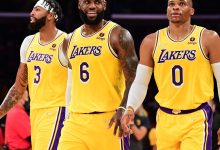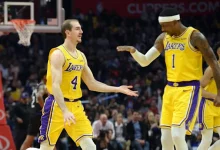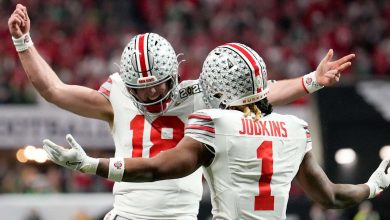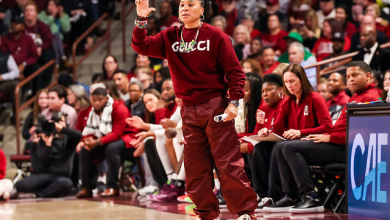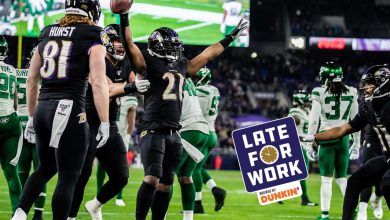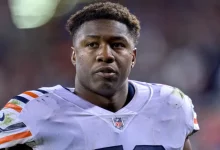Michael Jordan’s longtime agent David Falk zings LeBron James, accusing him of joining “cherry-picked” championship teams in the ongoing “greatest of all time” debate between the legends.
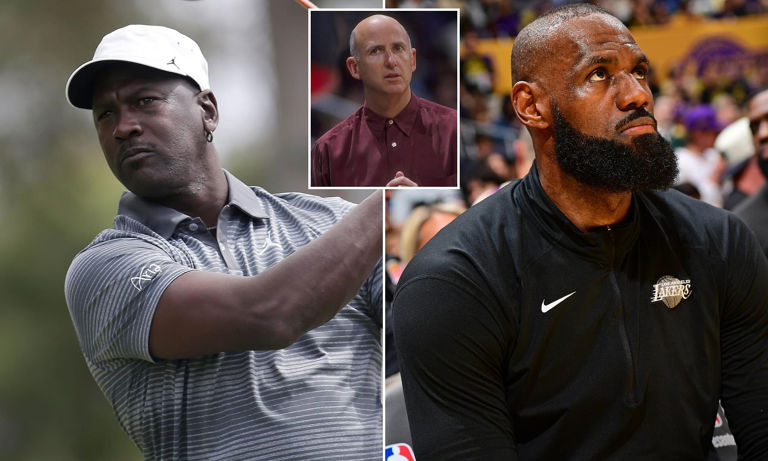
The debate over the NBA’s Greatest of All Time (GOAT) is one that never seems to lose steam, continually reignited by new arguments, comparisons, and perspectives. Recently, the conversation heated up once again after Michael Jordan’s longtime agent, David Falk, made provocative comments about LeBron James and his championship legacy. Falk accused LeBron of “cherry-picking” his championship teams, a claim that has stirred controversy and sparked passionate responses from fans, analysts, and LeBron’s camp alike.
Who Is David Falk?
David Falk is one of the most influential figures in NBA history, renowned for pioneering modern sports agency. He was Michael Jordan’s agent during Jordan’s playing career, helping negotiate some of the most lucrative contracts and endorsement deals in sports. Falk’s connection to Jordan is deep, and his voice in basketball conversations carries significant weight, especially in debates surrounding Jordan’s legacy.
Given his close relationship with Jordan, Falk has often been a staunch defender of the basketball legend’s reputation and achievements. His recent comments about LeBron James, therefore, come from a position of someone who has witnessed basketball greatness up close and played a role in shaping the careers of NBA icons.
The Remark: ‘Cherry-Picked’ Championship Teams
David Falk’s recent critique centers on the idea that LeBron James’ championship victories came with the advantage of “cherry-picking” teammates and teams. By this, Falk implies that LeBron has strategically chosen to join teams with star players or constructed super-teams, rather than winning titles through building and leading teams organically from the ground up, as Jordan did with the Chicago Bulls.
This argument touches on a contentious aspect of LeBron’s career: his high-profile moves in free agency, particularly his decision to join the Miami Heat in 2010 alongside Dwyane Wade and Chris Bosh. That move famously formed a “super-team” and sparked a paradigm shift in the NBA, leading to several other star players joining forces to maximize championship chances.
Falk’s critique suggests that LeBron’s championships are less pure or earned under tougher circumstances than Jordan’s, who won six titles with the Bulls without joining forces with other established stars in the same way.
Context: LeBron’s Career Path and Team Building
LeBron James’ career has been marked by strategic decisions about team composition and player movement, often involving forming or joining super-teams to enhance his championship prospects. After his initial years with the Cleveland Cavaliers, LeBron’s move to Miami was groundbreaking, leading to four consecutive NBA Finals appearances and two championships.
Following his return to Cleveland, LeBron helped build a championship team that featured Kyrie Irving and Kevin Love, culminating in the 2016 NBA title, ending Cleveland’s 52-year professional sports championship drought. Later, he joined the Los Angeles Lakers, a franchise with its own rich history, and secured another title in 2020.
Critics argue that LeBron’s path differs from traditional dynasties, where teams built around a core gradually develop championship success. Supporters counter that LeBron’s ability to attract top talent and adapt to new teams showcases his leadership and basketball acumen.
Comparing to Michael Jordan’s Bulls
Michael Jordan’s Bulls dynasty from 1991 to 1998 is often regarded as one of the greatest in sports history. Jordan, alongside Scottie Pippen and coach Phil Jackson, crafted a team that won six championships, including two three-peats. Unlike LeBron, Jordan remained with the same franchise throughout his prime years (aside from brief retirements and a final stint with the Washington Wizards).
Jordan’s legacy is often framed as a model of loyalty, perseverance, and individual dominance within a consistent team framework. Critics like Falk emphasize that Jordan did not assemble super-teams by joining other stars but instead built a dynasty through internal growth and development.
The GOAT Debate: More Than Just Championships
At its core, Falk’s comments highlight the complexity of the GOAT debate. Championships alone do not capture the full measure of greatness. Factors such as individual skill, influence on the game, leadership, longevity, and adaptability all play significant roles.
LeBron’s supporters argue that his sustained excellence, versatility, and impact on multiple franchises elevate him in the GOAT conversation. They point out that modern NBA dynamics involve more player movement and team-building flexibility, making LeBron’s accomplishments remarkable in a different context.
Meanwhile, Jordan’s advocates emphasize his perfect Finals record, unmatched competitive drive, and cultural influence, which set a standard for greatness in a different era.
LeBron’s Response and Supporters’ Defense
LeBron James and his camp have often responded to criticisms about team-building strategies by highlighting the changing nature of the NBA. LeBron’s ability to adapt to evolving league trends, manage team dynamics, and excel in high-pressure situations is seen as evidence of his greatness.
Supporters argue that LeBron’s decision to join strong teams does not diminish his skill or leadership; rather, it reflects a savvy understanding of how to maximize championship potential in a modern league. They also note his ability to elevate teammates and take on immense responsibility, even within super-teams.
Moreover, LeBron’s longevity and consistent production over nearly two decades counter arguments that his success relies solely on surrounding talent.
The Broader Impact on NBA Culture
The “super-team” phenomenon, popularized in part by LeBron’s moves, has reshaped NBA culture and competitive balance. Teams now often seek to attract multiple stars through free agency and trades, creating dynamic shifts in power.
David Falk’s critique, while directed at LeBron, also implicitly challenges this evolving landscape, sparking debate about whether modern championships hold the same weight as those from previous eras.
Fans and analysts continue to grapple with these changes, recognizing that the NBA’s competitive environment has evolved but also celebrating the strategic ingenuity of players like LeBron.
What This Means for Future Generations
The conversation sparked by Falk’s remarks goes beyond LeBron and Jordan. It raises questions about how future players will build legacies in an increasingly fluid league.
Will we see more super-teams and player-driven roster construction? How will this impact the way greatness is defined? As players gain more agency over their careers, the nature of championships and team-building will continue to evolve.
A Debate Without a Clear Winner
David Falk’s criticism of LeBron James’ “cherry-picked” championship teams adds another layer to the ongoing GOAT debate. It underscores the contrasting paths taken by two of basketball’s greatest icons and highlights broader shifts in NBA culture.
While Falk’s comments reflect a perspective rooted in loyalty to Michael Jordan’s legacy, the debate ultimately showcases the subjective nature of greatness in sports. Each era, player, and team has its unique context, making definitive comparisons difficult.
LeBron James’ career, marked by adaptability, strategic team-building, and sustained excellence, stands as a testament to modern basketball’s complexities. Meanwhile, Michael Jordan’s legendary dominance continues to inspire.
As fans continue to discuss and debate, one thing remains certain: both players have left indelible marks on the sport, enriching basketball history for generations to come.

